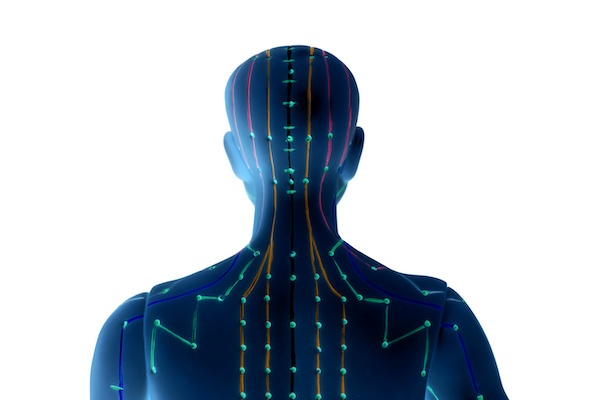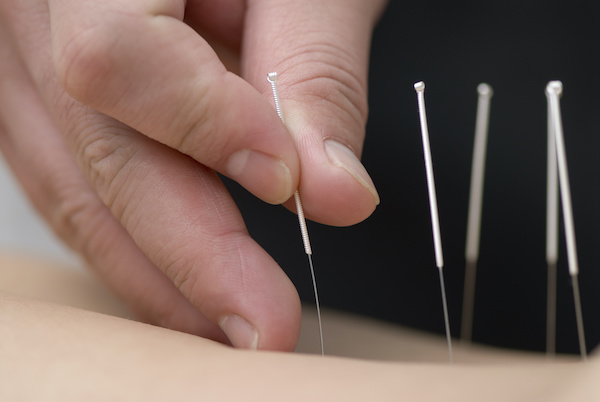Most of the time, when I’ve asked people why they get acupuncture treatments, they’ve said for pain relief. Studies have shown that not only can this ancient treatment help relieve pain, but it is also effective for many other health issues, including but not limited to:
- Headaches
- Addiction
- Menstrual cramps
- Fibromyalgia
- Osteoarthritis
- Carpal tunnel syndrome
- Asthma
- Nausea caused by surgical anesthesia and cancer chemotherapy
- Back pain
- Myofascial pain
Because scientific studies haven’t fully explained how it works in the framework of Western medicine, acupuncture can be somewhat controversial in the United States. That said, in other countries, it is used to treat even more health issues, such as (and again, not limited to):
- Irritable bowel syndrome and gastritis
- Anxiety and depression
- Insomnia
- Sinusitis
- Parkinson’s Disease
- Bronchitis
- Irritable bladder
You may have noticed an obvious connection between some of the conditions — they have “itis” at the end of them. “Itis” is a medical term that means inflammation. Inflammation can happen anywhere in the body and occurs when our white blood cells release certain chemicals into the bloodstream to protect us against bacteria, viruses, and other so-called invaders. The affected area generally gets swollen and hot and can cause fever, chills, fatigue, and other symptoms.
Under normal circumstances, the invader is destroyed and whatever inflammation has occurred as a result of the immune response goes away. Sometimes, though, a person’s immune system triggers the chemicals when there is no apparent invader. In essence, the body attacks itself. The result can be chronic inflammation and sometimes deadly tissue damage.

John Charlebois, licensed acupuncturist and co-owner of Jade Integrated Health in Portland and Brunswick, Maine is quite familiar with treating people whose immune systems are not functioning properly.
Autoimmune dysfunction manifests in a lot of different ways in the body. It could be allergies, it could be irritable bowel, Chron’s Disease, lupus, these are all autoimmune diseases. What acupuncture and traditional Chinese medicine is really very adept at is regulating the body’s tendency to overreact to that physiological threat or that autonomic threat. The primary momentum behind our approach in this situation is to reduce the fight or flight response.
John Charlebois, L.Ac., Jade Integrated Health
Acupuncture brings the body back into balance. An excess of something is reduced, a deficiency is elevated. In John’s words, “That’s the yin and yang of acupuncture.”
Acupuncture and cytokine storm: a study
An early study related to an extreme immune response and electroacupuncture (instead of traditional acupuncture needles, researchers used very thin electrodes) was published in August 2020 in the journal Neuron. Led by neuroscientists at Harvard Medical School, the study showed that acupuncture can “tame systemic inflammation in mice.” Specifically, it demonstrated that electroacupuncture stimulation could influence how “animals coped with cytokine storm.”
You may have heard of the term cytokine storm in connection with some COVID-19 infections. Cytokines are proteins in the immune system that play an important role in fighting infections. A cytokine storm happens when the body rapidly releases an excessive amount of inflammatory proteins, which can lead to serious even deadly consequences.
The Harvard researchers showed that by activating different signaling pathways, electroacupuncture could trigger either a pro-inflammatory or an anti-inflammatory response in the mice. In a news release, principal investigator Qiufu Ma, professor of neurobiology in the Blavatnik Institute at Harvard Medical School and a researcher at Dana-Farber Cancer Institute said, “Our findings represent an important step in ongoing efforts not only to understand the neuroanatomy of acupuncture but to identify ways to incorporate it into the treatment arsenal of inflammatory diseases, including sepsis.”
Treating humans with acupuncture
John Charlebois is quite familiar with treating inflammation connected with respiratory conditions such as asthma, chronic bronchitis, and other infections and conditions. Recently, he has been seeing more people with lingering iissues, including symptoms of lung inflammation, from COVID-19 infections.

No matter what the issue is, he aims to correct the flow of energy (chi or qi) through the body to achieve balance. He inserts acupuncture needles into specific points located along or near what are called meridians, which are located over the entire body. With respiratory issues, the modality works by targeting specific spots on the lung meridian, which stimulates the respiratory system and activates a targeted immune response. In the case of an overactive immune system, he tries to “reeducate the autonomic nervous system.”
While it might seem so, acupuncture is not a passive practice and it’s not just about knowing where to stick the needles.
I read a mosaic, I don’t follow a line.When it comes to these chronic conditions, when we’re able to get that mosaic of the person’s health, then we’ll see a pathway and we’ll know the tools to be able to assist that person through that pathway. It’s not a one-sided exchange. We have to educate the person on the other end about what they need to change or start cultivating in their own life. Acupuncture is a tool to help harmonize energy and matter throughout the body, inside and outside.
John Charlebois, L. Ac.
For more information about Jade Integrated Health, its approach to wellness, and what it offers for services, visit the website.


Leave A Comment